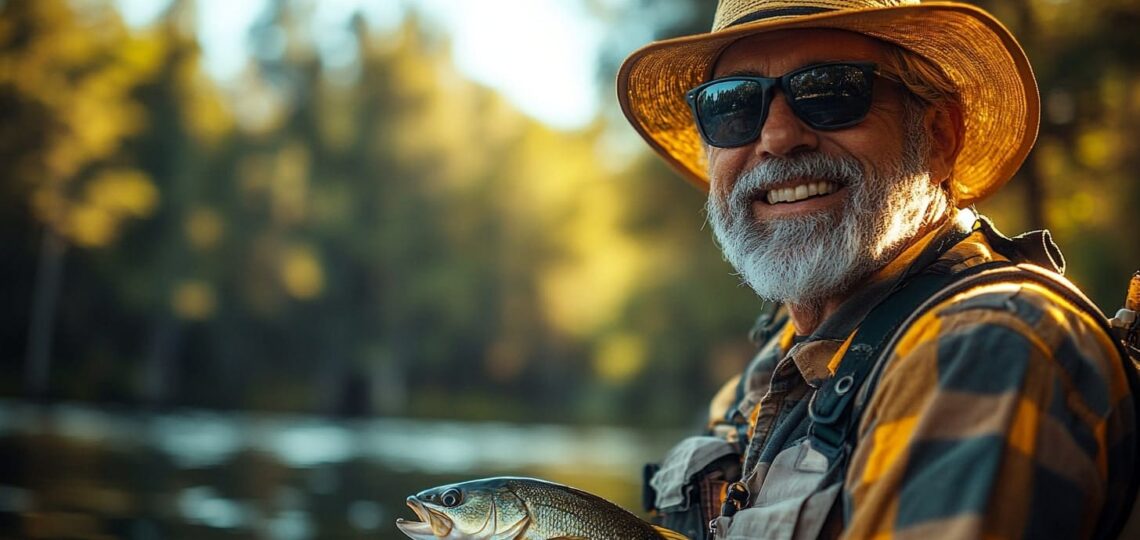
Hunting vs. Fishing: Which Outdoor Adventure is Right for You?
Outdoor enthusiasts often find themselves torn between the thrill of hunting and the tranquility of fishing. Both activities offer unique challenges, rewards, and connections with nature, but they cater to different preferences and skill sets. Whether you enjoy stalking game in dense forests or casting lines in calm waters, hunting and fishing each provide their own form of adventure. This article dives into the key differences, similarities, and factors to consider when choosing between these two beloved pastimes.
The Thrill of the Chase: Hunting
Hunting is a deeply immersive experience that requires patience, skill, and a keen understanding of wildlife behavior. Whether you’re pursuing deer in the woods or pheasants in open fields, hunting is as much about the journey as it is about the harvest.
The physical demands of hunting are significant. Stalking prey involves traversing rugged terrains, setting up blinds or tree stands, and sometimes waiting for hours in challenging conditions. Hunters must also be well-versed in tracking, reading animal signs, and knowing when to take the perfect shot.
Additionally, hunting is highly regulated, with specific seasons, bag limits, and licensing requirements varying by region. Ethical hunting practices are paramount, ensuring sustainability and respect for the environment.
The Gear:
Hunters rely on specialized gear, including firearms, bows, camouflage clothing, and scent control products. The type of gear needed often depends on the game being hunted and the environment. For instance, duck hunters may use decoys and waders, while big game hunters require powerful rifles and high-quality optics.
The Reward:
Hunting offers a profound sense of accomplishment. Harvesting an animal after hours or even days of effort provides a direct connection to nature and the food chain. Many hunters also cherish the solitude and mindfulness that come with time spent in the wilderness.
The Calm of the Cast: Fishing
Fishing offers a contrasting experience, emphasizing relaxation and patience. Whether on a serene lake or a rushing river, fishing allows participants to connect with aquatic ecosystems and enjoy the meditative rhythm of casting and reeling.
Fishing techniques vary widely, from fly fishing in pristine streams to deep-sea fishing in open waters. Each method requires its own set of skills and equipment, making fishing accessible to people of all experience levels.
Unlike hunting, fishing can often be enjoyed year-round, with fewer restrictions and less preparation required. While some anglers prefer the simplicity of a fishing rod and live bait, others embrace the challenge of mastering advanced techniques, such as trolling or jigging.
The Gear:
Fishing gear ranges from simple rods and reels to sophisticated sonar systems that detect underwater activity. Fly fishermen might use lightweight rods and artificial flies, while saltwater anglers may require heavy-duty gear to tackle large game fish.
The Reward:
Fishing is not always about the catch. For many, it’s about the journey—the peaceful hours spent by the water, the anticipation of a bite, and the joy of reeling in a fish. Catch-and-release fishing has also grown in popularity, emphasizing conservation and the enjoyment of the sport.
Similarities Between Hunting and Fishing
Despite their differences, hunting and fishing share several commonalities. Both activities foster a deep connection with nature and require a combination of skill, strategy, and patience. They also emphasize respect for the environment and wildlife, with conservation playing a crucial role in both pursuits.
Both hunting and fishing involve some level of uncertainty. Success depends on understanding the habits of animals or fish, adapting to changing conditions, and having the perseverance to continue when the day doesn’t go as planned.
Additionally, both hobbies can be enjoyed solo or with others. Whether bonding with friends during a fishing trip or teaching a child how to hunt, these activities are excellent ways to create lasting memories.
Key Differences to Consider
Physical Activity:
Hunting is often more physically demanding, involving long hikes, carrying equipment, and sometimes hauling game. Fishing, on the other hand, can range from physically intensive (like fly fishing in fast currents) to leisurely (sitting by a pond with a fishing pole).
Cost:
The cost of getting started with hunting is typically higher due to the need for firearms, ammunition, and specialized clothing. Fishing can be more affordable, with basic gear available for relatively low prices.
Accessibility:
Fishing is generally easier to access, with public lakes, rivers, and shorelines available for anyone with a fishing license. Hunting often requires access to private land or specialized permits.
Seasonality:
Hunting seasons are strictly regulated, while fishing is often available year-round. This makes fishing a more flexible option for those with busy schedules.
Skill and Knowledge:
Both activities require knowledge, but the skills differ. Hunters need to understand ballistics, tracking, and wildlife patterns, while anglers focus on knot-tying, lure selection, and water conditions.
Which is Right for You?
Choosing between hunting and fishing depends on your personality, interests, and lifestyle. If you enjoy high-intensity adventures and the challenge of tracking and harvesting game, hunting may be the better fit. If you prefer a more relaxed and contemplative experience, fishing could be the perfect choice.
For many outdoor enthusiasts, the best option is to embrace both activities. Each offers its own rewards, allowing you to experience the beauty and diversity of nature in different ways.
Conclusion
Hunting and fishing are timeless pursuits that connect us to the natural world and our ancestral roots. While they differ in technique, gear, and focus, both provide unparalleled opportunities for adventure, learning, and personal growth.
Whether you choose the thrill of the hunt or the calm of the cast, the key is to immerse yourself in the experience, respect the environment, and savor the journey. After all, the best outdoor adventures are not just about the destination but about the memories and connections made along the way.